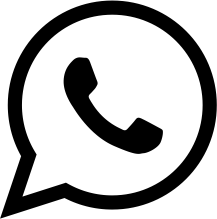We’ve all seen it: a product manual that reads like a robot wrote it, a marketing slogan that’s hilariously off-key, or a website that just doesn’t feel right in another language. What’s often at the root of these linguistic missteps? A literal, word-for-word translation.
At Accuword Global, we believe translation isn’t just about swapping words. It’s about bridging cultures, conveying intent, and ensuring your message resonates authentically with your target audience.
The Perils of “Copy-Paste” Translation: When Accuracy Becomes a Misunderstanding
Imagine you have a phrase in English like “break a leg!” You know it means “good luck.” But a literal translation into Spanish would be “¡rómpete una pierna!” — an alarming and certainly unwelcome suggestion! This simple example highlights a crucial point: languages aren’t interchangeable codes.
- Context is King (and Queen, and the Entire Royal Court): Words derive their meaning from the surrounding text, the situation, and the cultural nuances. A literal translation strips away this vital context, often leading to confusion, unintended humor, or even offense. As Hatim and Munday (2004) emphasize in their seminal work on translation studies, “meaning is not inherent in words, but is constructed through the interaction of words within a context.”
- Tone and Style Get Lost in Translation (Literally): Is your communication formal or informal? Persuasive or informative? Humorous or serious? A word-for-word approach rarely captures these subtle yet critical elements. The result is a flat, unnatural, and often ineffective message. Consider the difference between “utilize” and “use.” While technically similar, their usage impacts the overall tone of a document.
- Terminology Takes a Hit: Especially in specialized fields like legal, medical, or technical translation, precise terminology is paramount. A literal translation might use a common equivalent, but it could miss the industry-specific term that carries a precise legal or technical meaning. This can lead to serious errors, misinterpretations, and even legal liabilities. The European Union’s IATE database, for example, is a testament to the need for standardized, contextually appropriate terminology across various domains (IATE, n.d.).
Accuword Global: Where Communication Thrives, Not Just Translates
At Accuword Global, we understand that translation isn’t a mechanical process; it’s a creative and intellectual endeavor. Our approach goes far beyond simply replacing words. We meticulously adapt your message by focusing on:
- Tone: We ensure your brand voice and the intended emotional impact of your content are faithfully recreated in the target language. Whether it’s a playful marketing campaign or a solemn legal document, the tone will be spot-on.
- Context: Our expert linguists delve into the surrounding information and the cultural landscape of your target audience to ensure every word makes sense and resonates appropriately.
- Terminology: We leverage extensive glossaries, industry-specific knowledge, and cutting-edge tools to guarantee accurate and consistent terminology, especially for highly specialized content. This is crucial for maintaining clarity and credibility in fields where precision is paramount.
- Cultural Nuances: We don’t just translate words; we localize your message. This means understanding and incorporating the cultural sensitivities, idioms, and conventions of your target market. What’s perfectly acceptable in one culture can be offensive or confusing in another.
Translation Isn’t Copy-Paste – It’s Communication.
Think of it this way: a literal translation is like providing someone with all the ingredients for a meal, but no recipe. You have the raw components, but no guidance on how to combine them to create a delicious and satisfying dish.
True translation, as practiced by the experts at Accuword Global, is about crafting that perfect recipe. It’s about understanding your original intent, your audience, and the unique linguistic and cultural ingredients required to make your message truly work in the real world.
Ready to ensure your message is not just understood, but truly felt?
Contact Accuword Global today for a consultation and let us help you communicate effectively across any language barrier. Visit us at www.accuwordglobal.com to learn more about our comprehensive translation and localization services.
Do you want to learn more? Check these references:
- Hatim, B., & Munday, J. (2004). Translation: An advanced resource book. Routledge.
IATE (InterActive Terminology for Europe). (n.d.). About IATE. Retrieved from https://iate.europa.eu/ (Note: This is a general reference to IATE. A direct link to an “About” page is usually available on such sites.)



Leave a Reply